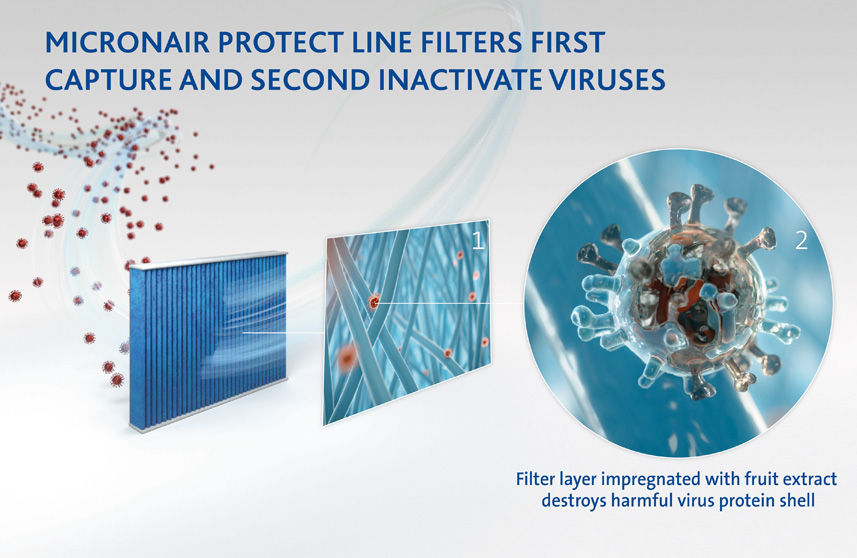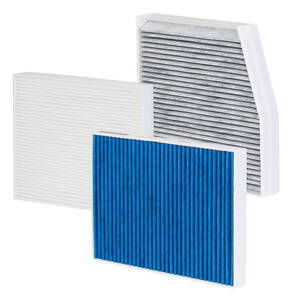Freudenberg cabin air filters provide added
anti-viral value
Recent ISO test finds micronAir proTect line filter successfully wards off various virus types
Vehicle cabin air filters by Freudenberg Filtration Technologies contribute to effective SARS-CoV-2 surface protection. Recent ISO18184 tests conducted by the renowned Guang Zhou Institute of Microbiology (China) have shown the company’s micronAir proTect line filters to inactivate virtually 100 percent of viruses by a unique anti-viral filter layer. The solution serves as an effective shield against airborne aerosols transmitting pathogens such as H1N1 and HCoV-229E. Thanks to a sophisticated dual mode of action, micronAir presents a viable option next to other available cabin filter solutions, including the much debated high-efficiency particulate air (HEPA) filters.
In the wake of the current coronavirus pandemic, health authorities around the globe are focusing on ways to contain the virus and flatten the infection curve. The first step to prevent viral airborne aerosols from causing harm is to directly filter them from the ambient air and secondly to inactivate the critical virus load by an anti-viral filter media layer. In closed environments like vehicle interiors, which pose a higher risk of infection through inhalation, filtrating airborne aerosols from the air is key to keep passengers safe.
“To reach this vital goal, our micronAir cabin air filters follow a two-pronged approach,“ Volker Braeunling, Global Technical Director Automotive Filters at Freudenberg Filtration Technologies, points out. „Our cabin air filter solution captures aerosol droplets and droplet nuclei within the range of 0.05 μm to 16 μm. As the latest Covid-19 studies of the World Health Organization (WHO) showed, these aerosols contain the critical virus load, causing harm as they are emitted during breathing, talking, coughing or sneezing.
“Once captured on the filter, the viruses are inactivated through a patented approach based on natural fruit extracts to prevent secondary contamination.” Volker Braeunling, Global Technical Director Automotive Filters
Upon reaching the filtration medium, viruses interact with the fruit extract’s acid environment. The reaction causes the rendering or denaturation of the virus’ protein structure, which leads to a harmless pathogen unable to infect human cells.

With regards to car cabins, micronAir cabin air filters might thus prove to be the only viable alternative to HEPA filters, which are largely used in cleanrooms and emergency rooms. “In highly specific settings where medical treatments like endotracheal intubation, bronchoscopy and tracheostomy are performed, HEPA filters are just one element of a holistic hygiene concept. In cabin air filtration, however, HEPA filters are rarely used. They theoretically offer added value through an exceptionally high particle separation, e.g. of fine particulate emissions. But their filter properties alone do not automatically translate into effective anti-virus protection to ensure real-life passenger safety, since vehicle cabins strongly differ from medical cleanrooms,” Braeunling points out. In order to fully leverage the potential of its micronAir cabin air filter line, Freudenberg Filtration Technologies is currently conducting additional tests at several research institutes across China and Europe. The goal is to further validate the anti-viral surface protection effect and the filtration efficiency against additional virus types.

Discover micronAir automotive cabin air filtersHighly efficient, reliable, long-lasting protection
 Language / Country
Language / Country


